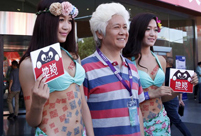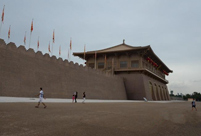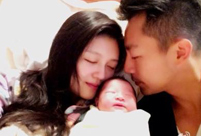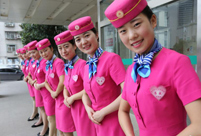 In pics: YOG prism
In pics: YOG prism
 Amputee girl reaches top of half-left tower in Jiangxi
Amputee girl reaches top of half-left tower in Jiangxi
 Yardangs in Lop Nur
Yardangs in Lop Nur
 Intoxicating Ayding Lake in Xinjiang
Intoxicating Ayding Lake in Xinjiang
 Beijing's MJ impersonator a 'thriller' for crowds
Beijing's MJ impersonator a 'thriller' for crowds
 Armed police compete on the plateau
Armed police compete on the plateau
 Rubber Duck settles in Guiyang new urban area
Rubber Duck settles in Guiyang new urban area
 Rare set of giant panda triplets turn one month old
Rare set of giant panda triplets turn one month old
 Closing ceremony of Youth Olympic Games
Closing ceremony of Youth Olympic Games
 Attractive posters to welcome freshmen
Attractive posters to welcome freshmen
BEIJING, Aug. 31 -- The National People's Congress (NPC) Standing Committee decided on Sunday to grant universal suffrage in selection of Hong Kong's chief executive on the basis of nomination by a "broadly representative" committee.
The decision on how the chief executive of the Hong Kong Special Administrative Region (HKSAR) will be selected was passed unanimously at the bi-monthly session of the NPC Standing Committee.
The document is entitled "Decision of the Standing Committee of the National People's Congress on Issues Relating to the Selection of the Chief Executive of the Hong Kong Special Administrative Region by Universal Suffrage and on the Method for Forming the Legislative Council of the Hong Kong Special Administrative Region in the Year 2016."
The decision allows two or three candidates to run for the HKSAR's top job after obtaining support from at least half of a nominating committee that "shall be made in accordance with the number of members, composition and formation method of the Election Committee for the Fourth Chief Executive."
Li Fei, vice secretary-general of the NPC Standing Committee, said during a press conference on Sunday afternoon that the size of the nominating committee was set at 1,200.
The chief executive-elect, after being selected through universal suffrage, will have to be appointed by the central government, read the decision, which stressed that the chief executive has to be a person who "loves the country and loves Hong Kong."
Li said this is a basic requirement of the policy of "One Country, Two Systems." The method for selecting the chief executive by universal suffrage must provide corresponding institutional safeguards for this purpose.
Top Chinese legislator Zhang Dejiang also said on Sunday that the new decision was of great importance to implementing the principles of "one country, two systems," "Hong Kong people administering Hong Kong," and ensuring the region maintains a high degree of autonomy while following the Hong Kong Basic Law.
"The decision is vital for steadily developing democracy in Hong Kong and implementing the selection of the HKSAR chief executive by universal suffrage according to law," he said.
UNIVERSAL SUFFRAGE
The current chief executive was elected by a committee in 2012.
According to the NPC decision, all eligible electors of the region have the right to vote in the election of the chief executive and elect one of the candidates for the office, according to the decision.
The decision said that "implementing universal suffrage... represents a historic progress in Hong Kong's democratic development and a significant change in the political structure of the HKSAR."
The existing formation method and voting procedures for the Legislative Council will not be amended.
Speaking during Sunday's press conference, Li Fei said the NPC Standing Committee's decision marked a "key moment" in Hong Kong's democratic development and is crucial to its current and future stability, as well as the fundamental interests of Hong Kong residents and foreign investors.
He said the central government has achieved remarkable progress in pushing forward orderly democratic development in Hong Kong since its return to China in 1997.
The first chief executive of the HKSAR was elected by a 400-member Selection Committee, while the second, third and fourth chief executives were elected by the Election Committee, the membership of which in the meantime had grown from 800 to 1,200.
Sunday's decision is of great "gravity and prudence," and carries "the unquestionable force of the law," Li told reporters.
"Hong Kong has accomplished democratic progress it never enjoyed under the British rule of over 150 years," said Chen Zuo'er, head of the Chinese Association of Hong Kong and Macao Studies.
"I should congratulate the Hong Kong people today for being so close to universal suffrage."
NOMINATING COMMITTEE
"The nominating committee shall nominate two to three candidates for the office of chief executive in accordance with democratic procedure," the decision read. "Each candidate must have the endorsement of more than half of all the members of the nominating committee."
However, a group in Hong Kong has called on residents to protest and demand a referendum and public nomination of candidates, citing an ambiguous concept of "international standards."
Li said the "international standards" clearly run against the Hong Kong Basic Law, adding that such "unpractical" calls had led to "a tremendous waste of time" in Hong Kong society.
He said the standards demanded by the group are "tailored only for their own interests and needs."
"What they really want are not 'international standards', but 'personal standards'," according to the senior legislator.
He said having two or three election candidates will make for an efficient election system and complies with the opinions of the majority expressed during a five-month consultation conducted by the HKSAR government.
Sunday's adoption of the NPC decision is the second step for Hong Kong's five-step electoral reform.
The specific method of universal suffrage shall be prescribed in accordance with legal procedures through amending Annex I to the Hong Kong Basic Law. Such amendments must be endorsed by at least two-thirds of all the members of the Legislative Council and with the consent of the chief executive before being submitted to the NPC Standing Committee for approval, the NPC Standing Committee decided.
If the specific method of universal suffrage for selecting the chief executive is not adopted in accordance with legal procedures, the method used for selecting Hong Kong's leader for the preceding term shall continue to apply, the decision said.
Li said whether Hong Kong could achieve universal suffrage depends on the subsequent steps, and called on "certain groups in Hong Kong to set aside prejudices and personal interests, showcase their political courage and wisdom... to push forward universal suffrage in the 2017 election."
"Some might say that if we don't have universal suffrage in 2017, we could still redo everything in 2022. But I think if we miss the opportunity in 2017, Hong Kong may never have the chance to regain the lost momentum," he said.
 Models with two-dimensional codes painted on bodies
Models with two-dimensional codes painted on bodies Antique exhibition of Maritime Silk Road held in Jinan
Antique exhibition of Maritime Silk Road held in Jinan NASA releases images of solar flare
NASA releases images of solar flare Daming Palace in Chang’an City in photos
Daming Palace in Chang’an City in photos Babies of celebrities born in the year of horse
Babies of celebrities born in the year of horse Farmer Painting, one of Ansai's Three Strange Wonders
Farmer Painting, one of Ansai's Three Strange Wonders Special holidays
Special holidays World's top 10 fighters
World's top 10 fighters 'Stewardesses' serve in hospital
'Stewardesses' serve in hospital The biggest duty-free store of the world
The biggest duty-free store of the world Volunteers bid farewell to YOG
Volunteers bid farewell to YOG More police dogs join anti-terror campaign in Inner Mongolia
More police dogs join anti-terror campaign in Inner Mongolia Picturesque Dayilan Manchu village in NE China
Picturesque Dayilan Manchu village in NE China Athletes experience the charm of Chinese traditional opera in Nanjing
Athletes experience the charm of Chinese traditional opera in Nanjing Contestants for Miss Bikini World experience Chinese traditional culture
Contestants for Miss Bikini World experience Chinese traditional cultureDay|Week|Month